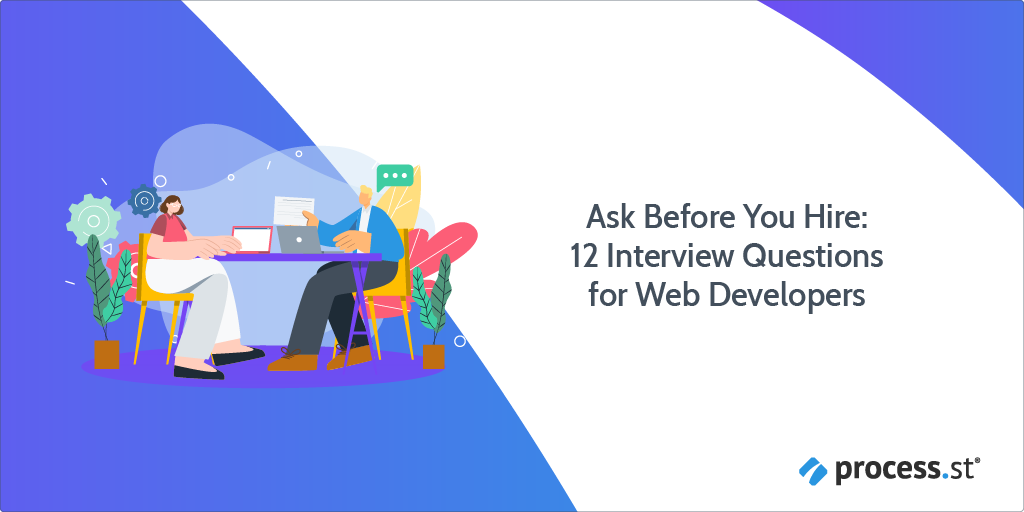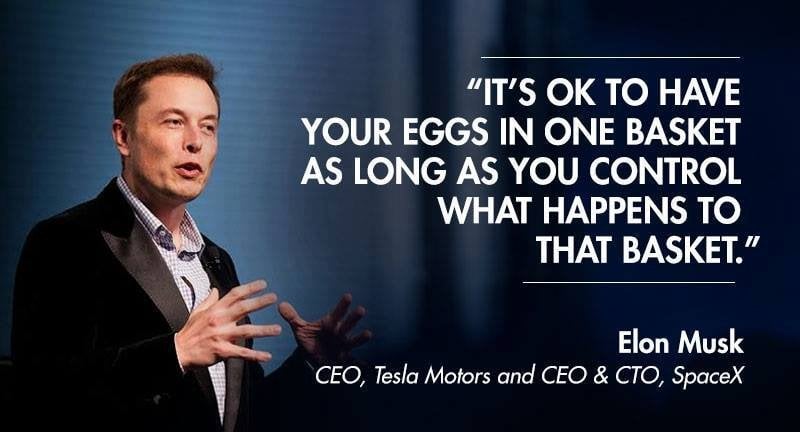 With 5+ years in digital marketing, Yulia Mamonova is driving Lemon.io’s growth with her spot-on writing and clear messages. A writer and a researcher at heart, Yuliia knows how to engage with the readership and build a story that’ll stand out. Yuliia has written over 1500+ pieces over the last few years reshaping the world of FinTech, startups, and content marketing with her skills.
With 5+ years in digital marketing, Yulia Mamonova is driving Lemon.io’s growth with her spot-on writing and clear messages. A writer and a researcher at heart, Yuliia knows how to engage with the readership and build a story that’ll stand out. Yuliia has written over 1500+ pieces over the last few years reshaping the world of FinTech, startups, and content marketing with her skills.
If you are reading this article, you may have already considered outsourcing some of your work to a freelance professional or perhaps even had some experience hiring a freelancer for your project. Or you may have been on the other side of the fence and taken up gig jobs yourself.
Anyway, the post-COVID world has shown us that we need to reevaluate our approach to ‘normal’ work and that freelance workers or independent contractors have a lot to offer to modern businesses facing a lot of budget constraints in these interesting times.
By hiring skilled freelancers, companies can secure themselves the expertise that would otherwise be hard to afford. They can be more responsive to the ever-evolving customers’ demands and still save money by cutting down on benefits.
However, to bring these perks to life, one must choose a real hero of the business’ story, someone who will understand what your team is trying to achieve and consistently contribute to the company’s goals.
In this Process Street post, we’ll be covering:
How important is an interview for freelance devs?
Most freelance marketplaces will cover your back and bear the brunt of the initial filtering of the candidates. Dedicated vetted tech talent networks will lead the prospect through a multi-stage screening process, evaluating their hard and soft skills to match you with the closest thing to a proverbial unicorn.
And yet, when outsourcing the very core of your project to someone who can as well be halfway across the world from you, it’s only natural to want at least some control over the situation. Even though a freelance developer may not feel ‘real’ as other full-time employees, setting up an interview with them is just as important as with any in-house team member.
A well-planned online interview will help you vibe check a candidate and see if they will be a good fit for your team. You will be able to assess how they think and communicate their ideas.
On the other hand, the candidate will have an opportunity to get a grasp of the company’s culture and project requirements and see if they are comfortable with them. After all, you are not the only one making a choice here, are you?
So, here are a dozen interview questions to ask your potential freelance developer before you clinch the deal.
12 interview questions to ask a freelance web developer
1. What was the most rewarding project you have ever worked on?
This question is called to give you some insight into the candidate’s values. What is their top priority? What keeps them motivated?
A person who is truly passionate about their work will always find something to tell you about, even though their projects may not be too exciting; and isn’t passion what we are looking for in the first place?
2. What was the biggest challenge in your career as a freelancer?
After decades of research and experiments, American Psychologists Carol Dweck and Paul O’Keefe established two types of mindset pertaining to people, depending on how they view challenges and perceive their interests:
A person with the so-called ‘fixed’ mindset will deem their interests as stable and generally dismiss anything that looks challenging or beyond their scope of experience. In contrast, people with the ‘growth’ mindset are optimistic about overcoming difficulties and can induce interest in practically every field of knowledge they deal with. In general, people with the growth mindset are healthier, more productive, and less prone to burnout.
So, by asking the candidate about the most challenging aspects of their work, you will not only assess their technical knowledge but also see how they treat challenges and gauge their overall level of self-awareness.
3. Tell me about a time when everything went wrong. What did you do?
Just as the previous question, this one aims to identify how the candidate responds to stressful situations. Do they take ownership of their mistakes? Are their problem-solving skills at a decent level? Can they work out an efficient solution when the time is tight and plan A doesn’t work out? Are they good at extracting lessons from their experience?
The more yeses you draw from your candidate’s presentation, the more likely you will be taking on a good professional and a mature individual, which will surely make your future cooperation more productive and save you some nerve in the future.
4. Has a client ever set you up? What exactly happened?
This one is not just to encourage the candidate to play the blame game; though, believe me, every developer has a bunch of stories to share and will gladly do so if you manage to establish rapport. Listen closely to some specifics that can relate to your project, but are difficult for your potential hire to deliver to.
For example, if the client changed the brief or objected to the project plan, this may be seen as an inconvenience by the developer but may still happen when other business processes come into play.
The point of this question is to find out the potential stumbling blocks and communicate all expectations upfront.
5. Have you ever worked on an open-source project?
Contributing to open-source projects, where the source code is publicly available for use and modifications, requires a great deal of commitment and outstanding communication skills.
Imagine writing challenging open-source code for several hours a day on top of your standard working hours and then responding to queries from the users or further contributors: no wonder that many companies hold such experience in high regard.
In addition to that, the interviewee’s GitHub profile is probably the only place where you can see their code not protected by various NDA, so the more commits to open-source projects they have, the fuller will be your understanding of their technical expertise.
6. How do you manage to stay productive while freelancing?
With the rise of remote work, this question is gaining more and more importance, not only among freelancers, but ‘regular’ employees as well. Not all people have the opportunity to have a well-arranged home office and have to switch between work and home errands during the day. As a result, many remote workers make up their working hours at the expense of night sleep.
Unstable working schedules often lead to stress, burnout, and the ensuing low productivity. This situation can be even worse among freelancers, for whom it’s always ‘either feast or famine,’ so they may sometimes take up more projects than they can handle within the typical working day.
So, let the interviewee give you a peek into their day as a freelancer, ask them how they organize their work and if there are any specifics you should be aware of. Moreover, it is important to know the hours during which the developer will for sure be available for a quick call. Also, ask them about their preferred channels of communication to be able to get in touch quickly if the need arises.
7. How would you approach a new project – from brief to delivery?
Whatever your project is like, it is essential to identify if you are on the same page with the developer regarding the project pipeline. They may have their own idea of how the development and delivery should take place. If that vision does not align with yours, it’s better to make the necessary adjustments before starting with the project. Otherwise, unmet expectations will strain your relationship and unnecessarily complicate your work.
However, do not try to push the developer into agreeing with your plan at all costs, as they may simply not be able to deliver accordingly. Instead, communicate your concerns and be open to suggestions to reach a win-win solution.
8. How do you gather requirements for the project?
This is the time for your interviewee to flip the roles and ask you a set of questions to determine the tech stack, specific use cases, and the core features expected. This question will help you probe for systemic thinking, their understanding of the project specifics, and the ability to ask the right questions.
Also, ask them how they would treat any information gaps if such occur. Ideally, they should initiate the discussion about any missing or redundant requirements and provide appropriate references to illustrate their point.
9. What would you do if you missed a deadline?
Even though your candidate may be the most committed and organized developer on the market, there will be a time when they miss a deadline. When outsourcing parts of your project to freelance professionals, you soon learn to add some buffer time to the actual deadline not to screw up the whole process if something goes wrong.
Yet, given the specifics of remote work, this question is still vital to your cooperation. A good freelance developer will over-communicate about their deadlines and will come up with a more feasible date right away. They will consistently inform you about the project’s current state so that you don’t have to stalk them like Batman in the dark alley.
10. How do you test your code and other deliverables?
No developers doubt the importance of testing the code before deploying it. However, most of them find the process mundane and unexciting. Given the fact that its results are somewhat intangible at first glance, many find it tempting to overlook this vital stage of development and tack them on later for the sake of mere process conformance.
There are plenty of tools out there allowing developers to test a website’s performance thoroughly and efficiently. Do not disregard this opportunity to avoid unnecessary risks for your business and choose those who prioritize timely testing.
11. How did you acquire your qualifications?
This question is rather broad as it may cover just any professional training or work experience the developer received. However, the point is not to weed out those who have no formal education but to see what learning strategies they personally find important.
While there is no unified standard of what computer science degrees all over the world should encompass, you never know who will write better code: a self-taught developer who has studied all up-to-date books and documentation or a person with a college degree who barely knows what production-grade code should look like.
12. How do you keep your tech skills up to date?
The modern tech world is changing more rapidly than ever before. The cutting-edge technology of yesterday may become obsolete tomorrow, so being a developer is pretty much like rowing upstream: one has to educate themselves continuously to at least keep pace with the rest of the professional community. More so, in times of information overload, choosing the right sources has become a skill in itself.
The ideal freelance developer would be learning new skills from books (though they do become outdated, the information published there is reviewed more thoroughly than in other sources), reputable conferences, or webinars held by technology creators.
On the other hand, learning from blog posts or YouTube tutorials of questionable quality may be useless and sometimes even harmful as unlearning misinterpreted information is often as challenging as acquiring new knowledge.
Web developer interview questions: Final thoughts
Of course, we did not mention some obvious questions, such as ‘What is your hourly rate?’ or ‘What is your preferred payment method?’ After all, don’t be afraid to ask questions about anything you find crucial for your project.
Also, make sure to give your interviewee enough space for their own questions, as this should be a conversation, not an interrogation.
With the launch date of your project approaching, another interview with a developer might seem a daunting prospect. However, this is your chance to build long-term, productive relationships with your remote team and protect your business from unnecessary risks.
As Elon Musk said:
You can save money and get the best expertise from freelance professionals, just make sure you come up with the right interview questions before you sign the dotted line.
Are there any valuable interview questions that we may have missed? Let us know in the comments below!







 Workflows
Workflows Projects
Projects Data Sets
Data Sets Forms
Forms Pages
Pages Automations
Automations Analytics
Analytics Apps
Apps Integrations
Integrations
 Property management
Property management
 Human resources
Human resources
 Customer management
Customer management
 Information technology
Information technology




Oliver Peterson
Oliver Peterson is a content writer for Process Street with an interest in systems and processes, attempting to use them as tools for taking apart problems and gaining insight into building robust, lasting solutions.